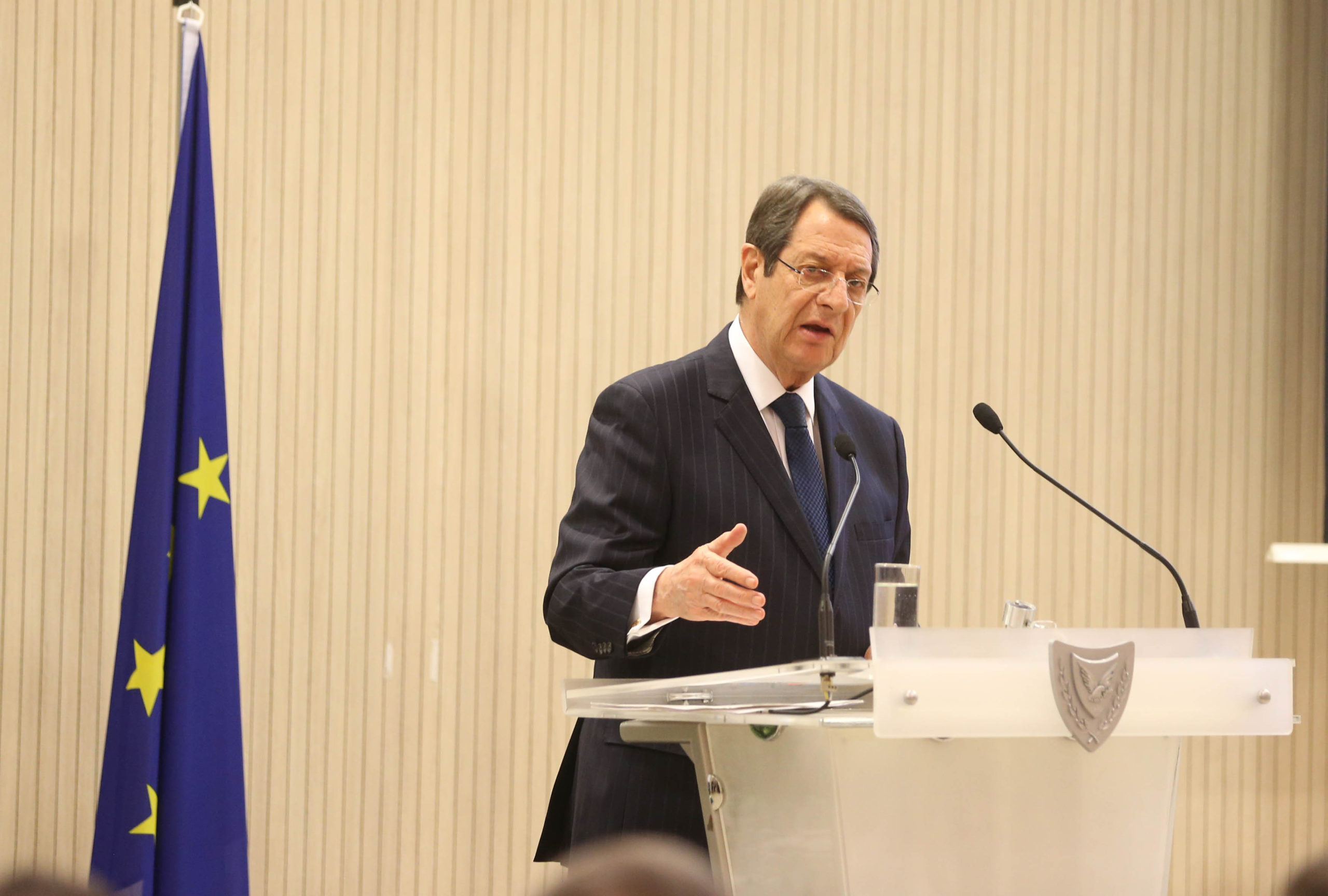Cyprus’ economy will bounce back from the COVID crisis next year with the government determined to execute radical reforms to ensure sustainable growth.
This was the message from President Nicos Anastasiades in a speech at Economist 16th Cyprus Virtual Summit.
“Following the unavoidable recession of economic activity in 2020 we expect a significant rebound in 2021, with positive growth rates, a drop in unemployment, a budget surplus and reduced public debt,” Anastasiades said in his speech.
“The Government’s broader strategy for economic recovery also includes the implementation of much needed structural reforms for the further development of key economic sectors.
“And the reforms which we aim to implement as soon as possible, involve the pension, welfare and labour market system, the judicial and healthcare systems, and the sectors of digital transformation, tourism, research and innovation and the green economy.”
Anastasiades said it is “vital” for Cyprus to “fully exploit” newly established European mechanisms such as the “SURE” and the “Recovery and Resilience Facility”, which provide the Government with the opportunity to access €1.5 bln in funds.
He said the agreed package of €540 bln in loans to support companies and workers in the Member States, has “significantly contributed to providing confidence”.
“We will continue with the sound governance of public finances, complemented by a business-friendly investment environment, moving forward with a comprehensive government strategy for investment and fully reforming the public sector so that it facilitates growth in a modern, knowledge-based, scientific, high-tech and innovative economy.”
The Day After
He said Cyprus and the world had to prepare for “the day after” the pandemic.
“For there will be a post-COVID world – the question is ‘what kind of world’, global challenges require global responses and enhanced partnerships.
“The current pandemic has revealed the dire need for more global cooperation to deliver universal access to treatment and vaccines.
“Ultimately, as the socio-economic challenges we face cannot be dealt with by states alone, we must also be more innovative in our thinking than ever before.
“We need to think about sustainable and more equitable solutions. We need to think green and in a digital context, we need to tackle existential threats such as climate change.”
Anastasiades told the conference the COVID-19 pandemic has caused “unprecedented” challenges for every country with severe socio-economic consequences.
“What is most worrying is the upward trend of new coronavirus cases and deaths we are currently witnessing; the so-called second wave.”
“A trend which puts additional pressure to our already weakened health systems, to economies which have been severely hit by the crisis, and, most importantly, to social cohesion, the social welfare system, work and employment conditions.
He praised the efforts of the EU and the Commissioner of Health in pre-ordering vaccines to cover the EU population, as well their solidarity to proceed with measures to avoid any further adverse economic and social effects for Europeans.
“My Government has been assertive in its decision-making and proactive in providing medical and economic support to our citizens, workers and enterprises,” said Anastasiades.
“Like many other countries, we had to take harsh, painful, but necessary measures, to deal, in a timely and effective manner, to this unprecedented public health crisis.
“We immediately acknowledged, however, that, beyond saving lives, we also had to safeguard livelihoods and address the potential economic and social disruption the lockdown measures would cause.”
He said the government adopted a “generous package” of support measures, of more than €1.3 bln, supporting over 190,000 workers and thousands of businesses.
“This was possible due to the Cyprus government’s prudent economic management, accumulating fiscal surpluses that could be used in emergency cases such as the current pandemic crisis.”
He said the government’s aim was “to ensure the sustainability of businesses, preserve jobs, maintain the income of our citizens, protect the rights of workers and provide the necessary support to our economy to recover as quickly as possible”.










